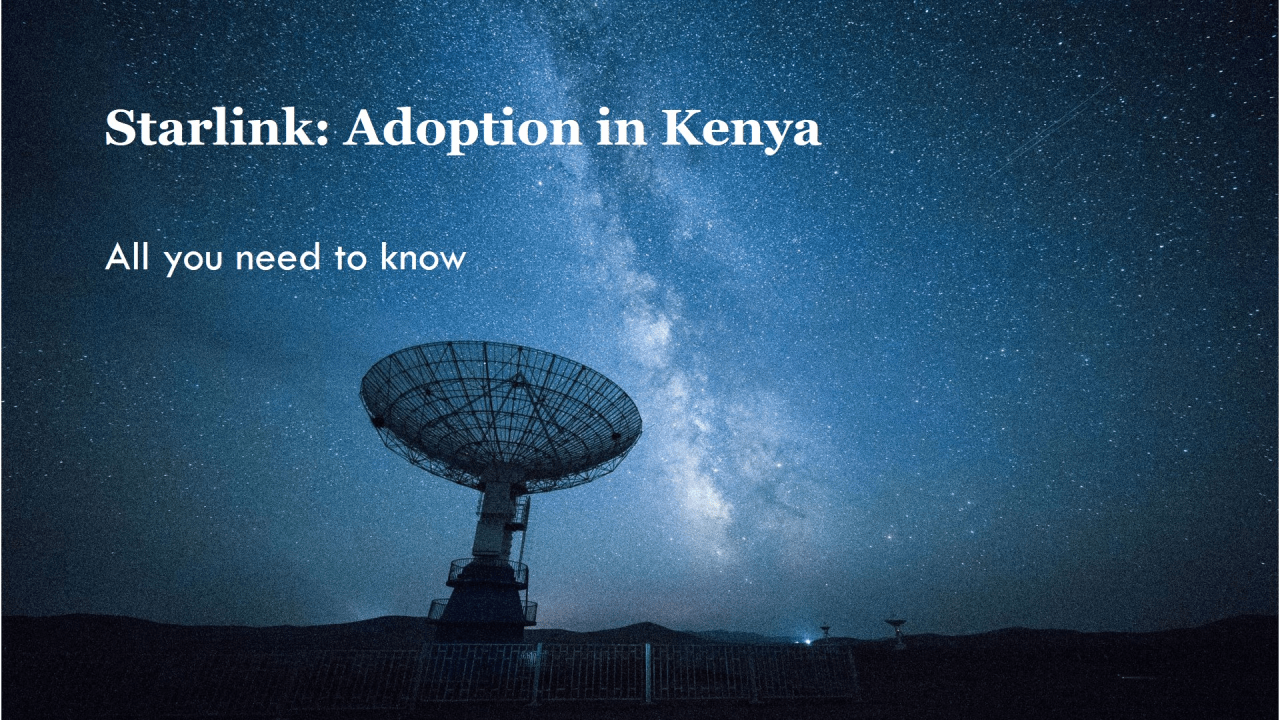
As we advance into a future increasingly shaped by technology, the role of Artificial Intelligence (AI) becomes ever more significant. This article explores various aspects of AI, addressing its potential dangers, job market implications, ethical considerations, transformative capabilities, and current industry trends. By answering common questions about AI, we aim to provide a comprehensive understanding of its impact on society.
Why We Share on This Topic
As a a reputable IT solutions provider, we believe understanding the impact of artificial intelligence(AI) on jobs is essential for businesses and professionals.
As AI reshapes industries, staying informed about its implications helps organizations adapt and thrive. By sharing insights on this topic, we aim to highlight both the challenges and opportunities Artificial Intelligence presents, aligning with our mission to enhance productivity and ensure business continuity in a rapidly changing market.
Artificial Intelligence (AI): A Game-Changer in Technology
Artificial Intelligence (AI) is revolutionizing how machines process information, enabling them to perform tasks that traditionally require human intelligence. From learning and problem-solving to understanding language and interpreting data, AI is reshaping industries and driving digital transformation.
What is Artificial Intelligence?
At its core, AI refers to the simulation of human intelligence in machines, particularly computer systems. These systems can:
- Learn – Acquire and apply knowledge from data.
- Example: A spam filter learns to detect new types of junk emails based on user behavior.
- Reason – Analyze information and draw logical conclusions.
- Example: Fraud detection systems analyze transaction patterns to flag suspicious activity.
- Solve Problems – Identify solutions based on available data.
- Example: Virtual assistants like Siri or Alexa answer queries and solve simple user requests.
- Perceive – Interpret sensory inputs such as images and sounds.
- Example: Facial recognition in smartphones unlocks devices based on stored facial data.
- Process Language – Understand and generate human language (Natural Language Processing or NLP).
- Example: Chatbots in customer service respond to user inquiries in real-time.
How AI Works – A Simple Breakdown
AI systems function by using large amounts of data and smart algorithms to learn and improve over time. Here’s how it works:
- Collecting Data – AI needs a lot of information to learn. This data can be structured (like organized databases) or unstructured (like text, images, or videos).
- Training the System – AI is “taught” using this data, much like a student learning from examples. It recognizes patterns and connections to understand how things work.
- Making Predictions – Once trained, AI can make decisions based on new information. For example, a facial recognition system can identify people in photos because it has learned how faces look.
- Learning Over Time – AI systems don’t just stop learning after training. They improve by continuously analyzing new data and adjusting their models.
Types of AI Learning
- Supervised Learning – AI learns from labeled examples where the correct answers are provided.
- Example: A system is trained with photos labeled “cat” or “dog” to recognize animals in new images.
- Unsupervised Learning – AI looks for patterns in data without being given specific labels.
- Example: A music app groups similar songs together based on listening habits.
- Reinforcement Learning – AI learns by trial and error, getting rewards for correct actions.
- Example: A self-driving car learns how to navigate by being rewarded for safe driving decisions.
Applications of Artificial Intelligence
AI has numerous applications across various industries:
- Healthcare: AI is used for diagnostics, personalized medicine, and predictive analytics to improve patient outcomes.
- Finance: Algorithms analyze market trends for trading decisions and fraud detection.
- Transportation: Self-driving cars utilize AI for navigation and safety features.
- Customer Service: Chatbots and virtual assistants handle inquiries and support tasks efficiently.
- Entertainment: Recommendation systems suggest content based on user preferences (e.g., Netflix or Spotify).
- Manufacturing: Robotics powered by AI enhance production efficiency and safety.
The Impact of AI: Challenges & Considerations
Artificial Intelligence (AI) is transforming industries and enhancing efficiency, but it also brings ethical and societal challenges that must be addressed.
Here are some key concerns surrounding AI’s impact:
Autonomous Decision-Making
AI is increasingly making critical decisions in areas like finance, healthcare, and transportation. However, determining accountability for AI-driven decisions can be complex.
🔹 Challenges: AI operates as a “black box,” meaning its decision-making process is often opaque. If an AI system makes an error—such as misdiagnosing a patient or approving a fraudulent loan—it’s unclear whether responsibility falls on developers, users, or the AI itself.
🔹 Considerations: To ensure accountability, organizations should adopt transparency measures such as explainable AI (XAI), regular audits, and oversight committees that monitor AI decision-making processes.
Job Displacement
AI-driven automation is reshaping the workforce, eliminating some jobs while creating new opportunities.
🔹 Challenges: Routine and repetitive jobs in sectors like manufacturing, retail, and customer service are at high risk of automation, potentially leading to economic disruption.
🔹 Considerations: Investing in reskilling and upskilling programs will be crucial in preparing workers for emerging AI-related roles, such as data science, AI ethics, and cybersecurity.
Bias in AI
AI systems can reinforce societal biases if trained on skewed or unrepresentative data, leading to unfair outcomes in hiring, lending, and law enforcement.
🔹 Challenges: Facial recognition and predictive policing systems have been found to misidentify individuals from marginalized groups more often than others, reinforcing discrimination.
🔹 Considerations: Organizations should prioritize fairness by diversifying training data, using bias-detection tools, and conducting ethical AI audits before deployment.
Privacy Concerns
AI-powered surveillance and data collection raise serious privacy risks, impacting personal freedoms and security.
🔹 Challenges: AI can analyze vast amounts of personal data from social media, surveillance cameras, and online activities, sometimes without user consent.
🔹 Considerations: Businesses must implement strong data protection policies, ensure compliance with regulations like GDPR, and enhance user control over personal data through transparency and opt-in mechanisms.
The Expanding Impact of AI: Challenges, Solutions & Future Considerations
Artificial Intelligence (AI) is reshaping industries, economies, and societies at an unprecedented pace. While it offers immense benefits, it also introduces challenges that require proactive solutions. Let’s explore some key areas of concern and the potential strategies to address them.
Economic Inequality
AI-driven automation can widen the gap between high-skilled and low-skilled workers, concentrating wealth in tech-centric industries. This polarization risks leaving behind low-wage workers and small businesses.
Implications & Solutions:
✔️ Implement policies for inclusive growth, such as AI-driven job creation programs.
✔️ Expand access to affordable tech education and digital skills training.
✔️ Support displaced workers through upskilling and reskilling initiatives.
Ethical Considerations
AI-powered decisions in hiring, law enforcement, and lending raise questions of bias, accountability, and transparency. Who is responsible when AI makes a mistake?
Implications & Solutions:
✔️ Ethical AI frameworks should be mandatory in AI deployment.
✔️ Companies should conduct bias audits before launching AI-driven services.
✔️ Explainable AI (XAI) can enhance transparency in decision-making.
Policy & Governance
Governments must modernize labor laws, taxation, and social safety nets to adapt to an AI-driven economy.
Implications & Solutions:
✔️ Develop responsible AI governance policies to regulate automation’s impact.
✔️ Explore Universal Basic Income (UBI) or portable benefits to support displaced workers.
✔️ Encourage public-private partnerships to shape AI’s role in the workforce.
Environmental Impact
AI requires massive computing power, leading to high energy consumption and carbon emissions from data centers.
Implications & Solutions:
✔️ Optimize AI models for energy efficiency to reduce environmental impact.
✔️ Invest in sustainable AI applications like smart grids and climate modeling.
✔️ Promote green data centers powered by renewable energy.
Social Sustainability
AI-driven job displacement raises social concerns about economic security and community well-being.
Implications & Solutions:
✔️ Encourage businesses to implement fair workforce transitions.
✔️ Foster adaptable skill development to ensure long-term employability.
✔️ Balance automation with human-centered AI solutions.
The Future of Work
AI is not just replacing jobs—it’s creating entirely new roles that blend human intelligence with AI capabilities.
Implications & Solutions:
✔️ Emphasize lifelong learning to prepare for AI-driven job markets.
✔️ Encourage human-AI collaboration rather than full automation.
✔️ Identify new emerging careers in AI-related fields.
Preparing for an AI-Driven Future
AI’s potential is immense, but so are its challenges. Ethical policies, responsible governance, and a commitment to lifelong learning will be crucial in ensuring that AI benefits everyone—not just a select few.
Are Artificial Intelligence Systems Dangerous?
Potential Risks of AI
AI poses several risks that warrant careful consideration:
1. Job Displacement
AI-driven automation is replacing routine jobs, particularly in sectors like manufacturing and customer service.
🔹 Example: Self-checkout kiosks in retail stores and AI-powered chatbots in customer service have reduced the need for human employees.
🔹 Risk: Widespread automation could lead to economic disruption, requiring workers to acquire new skills to stay relevant in the job market.
2. Algorithmic Bias
AI systems can reflect and amplify biases present in their training data, leading to unfair or discriminatory outcomes.
🔹 Example: Hiring algorithms trained on biased data may favor certain demographics over others, leading to workplace discrimination.
🔹 Risk: Unchecked bias in AI decision-making can result in legal and ethical issues, affecting sectors like hiring, lending, and law enforcement.
3. Privacy Violations
AI’s ability to collect, analyze, and store vast amounts of personal data raises serious privacy concerns.
🔹 Example: AI-powered facial recognition can track individuals in public spaces without their consent, leading to potential misuse in surveillance.
🔹 Risk: Unauthorized data collection can infringe on personal freedoms and increase cybersecurity vulnerabilities.
4. Autonomous Weapons
The use of AI in military applications poses ethical and security risks, especially when decision-making is left to machines.
🔹 Example: AI-controlled drones or robotic weapons could make life-and-death decisions without human intervention.
🔹 Risk: These systems could be misused, leading to unintended casualties or escalating conflicts.
5. Social Manipulation
AI-powered algorithms can be used to spread misinformation, manipulate public opinion, and influence elections.
🔹 Example: AI-generated deepfake videos and social media bots have been used in political campaigns to mislead the public.
🔹 Risk: Misinformation fueled by AI can undermine democracy, create social unrest, and erode public trust in media.
6. Uncontrollable Self-Awareness (Theoretical Concern)
While AI developing self-awareness remains speculative, the idea raises questions about control and alignment with human values.
🔹 Example: Sci-fi scenarios depict AI surpassing human intelligence and making independent decisions beyond human control.
🔹 Risk: If AI systems were to evolve unpredictably, ensuring they remain aligned with human interests would be a significant challenge.
Can Artificial Intelligence Replace Human Intelligence?
The debate over whether AI can fully replace human intelligence is ongoing. While AI surpasses humans in processing speed and efficiency, it lacks essential qualities like emotional intelligence, creativity, and ethical reasoning.
Arguments for AI Replacing Human Intelligence:
✅ Efficiency & Speed: AI processes vast amounts of data faster than humans, improving decision-making in industries like finance and healthcare.
✅ Automation of Repetitive Tasks: AI excels at handling routine and repetitive tasks, reducing human error and increasing productivity.
✅ Advanced Problem-Solving: AI-driven algorithms can analyze complex patterns and optimize processes beyond human capability.
Arguments Against AI Replacing Human Intelligence:
❌ Lack of Emotional Intelligence: AI cannot understand emotions, empathy, or social dynamics, making it unsuitable for roles requiring human connection, such as counseling or negotiations.
❌ Creativity & Innovation: Unlike humans, AI lacks true creativity and intuition, which are essential for innovation in fields like art, literature, and strategic thinking.
❌ Ethical & Moral Judgments: AI lacks moral reasoning and struggles with ethical dilemmas, often making decisions based solely on data rather than human values.
💡 Conclusion: AI complements human intelligence rather than replacing it. The best outcomes come from collaboration—where AI enhances efficiency while humans provide creativity, emotional depth, and ethical oversight.
Can Artificial Intelligence Replace Human Jobs?
Yes, AI has the potential to replace certain jobs; however, it also creates new opportunities. According to a McKinsey report, while up to 75 million jobs may be displaced by 2025 due to automation, approximately 133 million new roles could emerge as a result of technological advancements1.
Jobs at Risk
The integration of AI and automation across various industries poses significant risks to certain job categories. According to the World Economic Forum’s Future of Jobs Report, it is estimated that 85 million jobs globally could be displaced by 2025 due to AI and automation. Here are some specific job roles that are particularly vulnerable:
1. Manufacturing Jobs
- Automation Impact: Routine tasks in manufacturing, such as assembly line work, are increasingly being performed by robots and automated systems. This trend is expected to displace millions of manufacturing jobs.
- Example: Positions like assembly line workers and machine operators face significant risks as companies adopt robotics for efficiency.
2. Administrative Roles
- Automation of Repetitive Tasks: Administrative assistants and clerks often handle repetitive tasks such as data entry, scheduling, and basic customer inquiries. AI tools can automate these functions, leading to job reductions.
- Example: Roles that involve managing schedules or processing paperwork are particularly at risk.
3. Customer Service Positions
- AI Chatbots and Virtual Assistants: Many customer service functions are being replaced by AI-driven chatbots capable of handling inquiries without human intervention.
- Example: Call center jobs may decline as companies implement AI solutions to manage customer interactions.
4. Retail Jobs
- Self-Service Technologies: The rise of self-checkout systems and online shopping platforms reduces the need for cashiers and sales associates.
- Example: Traditional retail roles are diminishing as consumers increasingly prefer automated checkout options.
5. Data Entry and Processing Jobs
- Efficiency Gains: Positions focused on data entry or basic data processing are at high risk due to AI’s ability to perform these tasks more quickly and accurately.
- Example: Data entry clerks may find their roles obsolete as organizations implement automated data management systems.
Emerging Roles
While many jobs are at risk, AI is also creating new opportunities within the labor market. The World Economic Forum predicts that around 97 million new jobs will emerge by 2025 as a result of AI advancements, leading to a net gain in employment opportunities. Here are some notable emerging roles:
1. Machine Learning Engineers
- Role Overview: These professionals design and implement machine learning algorithms and models that enable computers to learn from data.
- Skills Required: Proficiency in programming languages like Python, along with expertise in frameworks such as TensorFlow or PyTorch.
2. Data Scientists
- Role Overview: Data scientists analyze complex data sets to extract insights and inform business decisions. They play a crucial role in leveraging AI for strategic advantage.
- Skills Required: Strong analytical skills, statistical knowledge, and experience with data visualization tools.
3. AI Ethics Compliance Officers
- Role Overview: As organizations increasingly adopt AI technologies, there is a growing need for professionals who ensure compliance with ethical standards and regulations related to AI use.
- Skills Required: Understanding of legal frameworks, ethical considerations in technology, and risk management strategies.
4. Generative AI Engineers
- Role Overview: These engineers specialize in developing generative models that create content such as text, images, or music using AI technologies.
- Skills Required: Knowledge of deep learning techniques and experience with generative adversarial networks (GANs).
5. AI Trainers
- Role Overview: AI trainers work on teaching AI systems how to interpret data accurately by providing them with labeled datasets.
- Skills Required: Familiarity with machine learning principles and the ability to curate high-quality training data.
6. Robotics Technicians
- Role Overview: As businesses incorporate more robotics into their operations, technicians who can maintain and repair robotic systems will be in demand.
- Skills Required: Mechanical skills, knowledge of robotics programming, and troubleshooting abilities.
7. Cybersecurity Analysts
- Role Overview: With the rise of digital transformation driven by AI, cybersecurity analysts will be essential in protecting organizations from cyber threats.
- Skills Required: Expertise in network security protocols, threat analysis, and incident response strategies.
The impact of artificial intelligence on the job market is profound, with significant challenges posed by job displacement alongside promising opportunities for new roles. As industries continue to evolve through automation and AI integration, it is crucial for workers to adapt by acquiring new skills relevant to emerging positions.Organizations must also invest in reskilling their workforce to navigate this transition effectively. By understanding both the risks associated with job displacement and the potential for new employment opportunities, stakeholders can better prepare for a future shaped by artificial intelligence.
Can Artificial Intelligence Feel Emotions?
Currently, AI cannot genuinely feel emotions as humans do. While some systems are designed to recognize and respond to human emotions based on data patterns (e.g., sentiment analysis), they do not possess feelings or consciousness.
Current Industry Trends in Artificial Intelligence
The current trends in artificial intelligence (AI) are transforming industries and laying the groundwork for what the future of AI will look like. As we move into 2025, here are some of the most impactful trends that are shaping the AI landscape:
Agentic AI
AI systems are becoming more autonomous, moving beyond simple task automation to managing complex activities independently.
- What This Means: We’ll see more agentic AI systems that can handle decision-making processes, such as managing customer service workflows, overseeing business operations, or even performing financial transactions without human intervention.
- Implications: This will significantly reduce the need for human oversight in specific areas, driving efficiency but also raising concerns about job displacement and control over critical processes.
Multimodal AI
Multimodal AI is the integration of various types of data—text, images, video, and audio—into a unified framework, allowing machines to understand and generate insights from diverse inputs.
- What This Means: AI systems will be able to process and analyze data from different sources simultaneously, such as combining text and image data to create richer content or analyze customer feedback with voice recognition and sentiment analysis.
- Implications: Multimodal AI will enhance industries like marketing (better customer targeting), healthcare (more comprehensive patient data analysis), and entertainment (improved content recommendations).
Hyper-Personalization
Businesses will increasingly use AI to offer hyper-personalized services and products tailored to each consumer’s unique preferences.
- What This Means: AI will enable companies to customize everything—from e-commerce recommendations to health and wellness plans—based on detailed consumer insights derived from browsing history, buying patterns, and behavior.
- Implications: This trend will boost customer satisfaction and loyalty while allowing businesses to deliver more precise marketing, product offerings, and customer support.
Sustainable AI Development
AI developers and companies are focusing on reducing the environmental footprint of their AI operations through more energy-efficient models and greener technologies.
- What This Means: AI-driven innovations will be designed with sustainability in mind, leading to more energy-efficient algorithms and hardware.
- Implications: As AI continues to grow, it will need to minimize its energy consumption to avoid exacerbating the environmental issues it aims to solve. We may see AI optimized for carbon footprint tracking, energy-saving systems, and smart grids.
Generative AI Beyond Chatbots
Generative AI models are expanding beyond chatbots, becoming more sophisticated in generating content in various fields, including marketing, product design, and art.
- What This Means: Generative AI will be able to create original content like articles, music, designs, and even products. Companies will use it to automate content creation processes and develop new ideas.
- Implications: This will lead to cost-effective content production and rapid innovation in creative industries, but may also raise ethical concerns around intellectual property, originality, and authenticity.
Edge AI
With Edge AI, data is processed locally on devices, rather than relying on centralized cloud systems. This makes real-time decision-making possible, without compromising privacy.
- What This Means: Devices like smartphones, wearables, and IoT devices will process data locally, which is particularly useful in applications such as autonomous vehicles, healthcare monitoring systems, and real-time analytics.
- Implications: This shift will enhance privacy by reducing the need to transmit sensitive data to cloud servers and speed up response times for critical applications like healthcare and security systems.
AI-Driven Scientific Breakthroughs
In fields like healthcare, climate science, and pharmaceuticals, AI will be used to accelerate data analysis, driving major scientific breakthroughs.
- What This Means: AI will help researchers analyze massive datasets faster and more accurately, leading to advances in drug discovery, disease diagnosis, and understanding climate change patterns.
- Implications: The speed and accuracy of AI could lead to faster medical treatments, improved disease prevention strategies, and more sustainable environmental solutions.
In Conclusion
The impact of artificial intelligence is undeniable, with transformative potential across industries. As businesses navigate the complexities of AI, the importance of strategic IT planning and reliable support becomes clear.
Why Choose Ambience Communications?
We craft tailored IT strategies that perfectly align with your unique business goals. Our expert team stays ahead of the latest tech trends, delivering innovative solutions that drive growth. We put your needs first, offering prompt support and clear, transparent communication every step of the way.
At Ambience Communications, we pride ourselves on developing IT strategies that align with your specific business goals. By staying ahead of technological trends, we ensure that your organization not only adapts to AI advancements but thrives in an increasingly digital world.
With our team’s expertise, transparent communication, and dedication to your success, we’re here to guide you every step of the way as you leverage the power of AI to drive growth and innovation.
Join Us in Shaping the Future
Now is the time to embrace AI and technology advancements. Partner with Ambience Communications to ensure your business thrives in this dynamic environment.
- Contact Us Today for a Free consultation on how our IT solutions can enhance your operations.
- Visit Our Website to explore our services and discover how we can support your growth.
- Follow Us on LinkedIn for insights on industry trends and best practices.










